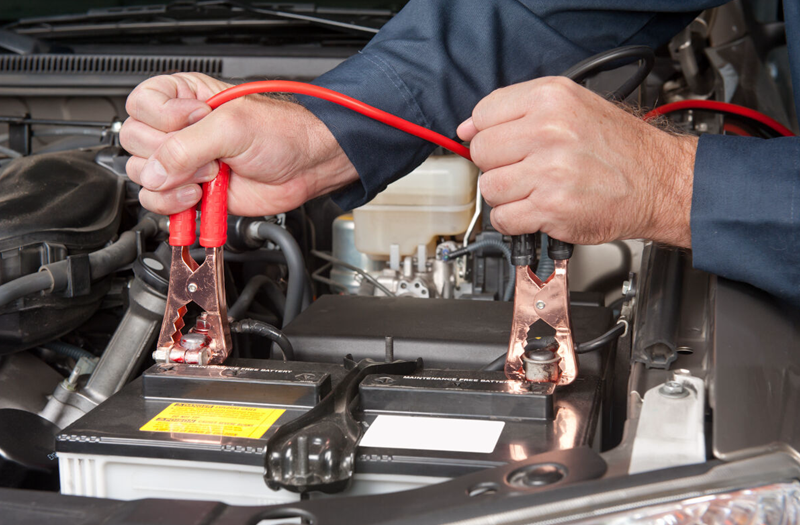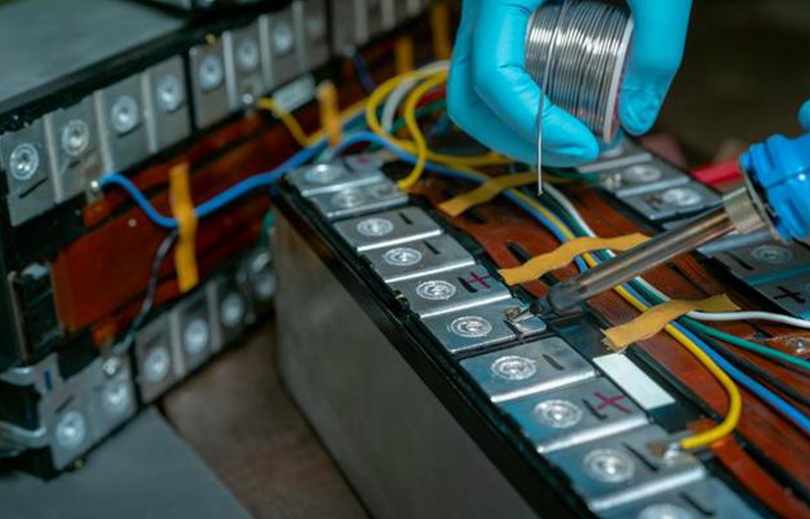Lithium Ion Battery: Powering the Future of Energy Storage
With the ever-growing demand for renewable energy sources, finding efficient and reliable ways to store energy has become a priority. One technology that has emerged as a frontrunner in energy storage is the lithium-ion battery. This small yet powerful device is revolutionizing the way we store and utilize energy. In this article, we will explore the intricacies of the lithium-ion battery and how it is shaping the future of energy storage.
To understand the significance of lithium-ion batteries, it is essential to comprehend their composition and working mechanism. A typical lithium-ion battery consists of several key components, including a cathode, an anode, a separator, and an electrolyte. During the charging process, lithium ions move from the cathode to the anode through the electrolyte, while the reverse happens during discharge. This movement of ions is facilitated by the flow of electrons, which generates the electrical energy that can be used to power various devices.
One of the primary reasons why lithium-ion batteries are gaining popularity is their high energy density. Compared to traditional lead-acid batteries, lithium-ion batteries can store significantly more energy in a smaller and lighter package. This advantage has made them the preferred choice for portable electronic devices, such as smartphones and laptops. Additionally, their high energy density also makes them ideal for electric vehicles, allowing for longer driving ranges and reduced charging times.
Another notable feature of lithium-ion batteries is their ability to maintain a consistent voltage throughout the discharge cycle. This means that devices powered by lithium-ion batteries will maintain a stable performance until the battery is nearly depleted. In contrast, traditional batteries experience a gradual decrease in voltage output as they discharge, resulting in a decline in the device\’s performance. The ability of lithium-ion batteries to deliver a constant voltage ensures a reliable power source for a wide range of applications.
Furthermore, lithium-ion batteries have a longer lifespan compared to other battery technologies. This is due to their ability to withstand a higher number of charge and discharge cycles without significant degradation. While the lifespan of a lithium-ion battery can vary depending on factors such as temperature and usage patterns, it generally outlasts other rechargeable batteries, making it a cost-effective solution in the long run.
The versatility of lithium-ion batteries extends beyond consumer electronics and electric vehicles. They are also being utilized for large-scale energy storage projects, which are crucial for integrating renewable energy sources into the electric grid. As the production of renewable energy, such as solar and wind, is intermittent, energy storage systems are needed to store excess energy for use during times of high demand or low generation. Lithium-ion batteries provide a reliable and efficient solution for these energy storage requirements, allowing for a more stable and sustainable grid.

However, like any technology, lithium-ion batteries are not without their challenges. One significant concern is their safety, as they are prone to overheating and, in rare cases, exploding or catching fire. Manufacturers are continuously working on improving the safety features of lithium-ion batteries, such as incorporating advanced thermal management systems and developing more stable electrolytes. These advancements aim to mitigate the risks associated with lithium-ion batteries and ensure their safe and widespread use.
In conclusion, the lithium-ion battery is a game-changer in the field of energy storage. Its high energy density, stable voltage output, long lifespan, and versatility make it the go-to choice for various applications, ranging from portable electronics to electric vehicles and large-scale energy storage. While there are still challenges to overcome, ongoing research and development efforts are paving the way for even more efficient and safer lithium-ion batteries. As we continue to transition towards a greener and more sustainable future, the lithium-ion battery will undoubtedly play a crucial role in powering the world.
-
 When it comes to batteries, there are two main types that are commonly used in various applications – deep cycle batteries and starting batteries. While they may appear similar, these batteries have different designs and are designed to serve different purposes. Understanding the differences between the two is crucial for making the right choice for your specific needs. In...더 읽어보세요
When it comes to batteries, there are two main types that are commonly used in various applications – deep cycle batteries and starting batteries. While they may appear similar, these batteries have different designs and are designed to serve different purposes. Understanding the differences between the two is crucial for making the right choice for your specific needs. In...더 읽어보세요 -
 In today's fast-paced world, where we are constantly on the go and dependent on our electronic devices, having a reliable and long-lasting power source is crucial. The 100Ah LiFePO4 Lithium Battery is a game-changer in this regard, as it offers an impressive power capacity that can keep your devices running for extended periods. The LiFePO4, or Lithium Iron Phosphate,...더 읽어보세요
In today's fast-paced world, where we are constantly on the go and dependent on our electronic devices, having a reliable and long-lasting power source is crucial. The 100Ah LiFePO4 Lithium Battery is a game-changer in this regard, as it offers an impressive power capacity that can keep your devices running for extended periods. The LiFePO4, or Lithium Iron Phosphate,...더 읽어보세요 -
 With the advancements in technology, the medical industry has seen significant improvements in the quality and efficiency of medical equipment. One key factor driving these improvements is the use of lithium batteries as a power source. Lithium batteries have revolutionized the medical field by providing a reliable and portable energy solution for various medical devices. In this article, we will...더 읽어보세요
With the advancements in technology, the medical industry has seen significant improvements in the quality and efficiency of medical equipment. One key factor driving these improvements is the use of lithium batteries as a power source. Lithium batteries have revolutionized the medical field by providing a reliable and portable energy solution for various medical devices. In this article, we will...더 읽어보세요 -
 Introduction Riding a motorcycle is an exhilarating experience, but it can be frustrating when your bike doesn't start due to a dead battery. This is where a Lifepo4 motorcycle battery comes in. It's a high-performance battery that offers better power and longer lifespan than traditional lead-acid batteries. In this article, we will explore the benefits of a Lifepo4 motorcycle...더 읽어보세요
Introduction Riding a motorcycle is an exhilarating experience, but it can be frustrating when your bike doesn't start due to a dead battery. This is where a Lifepo4 motorcycle battery comes in. It's a high-performance battery that offers better power and longer lifespan than traditional lead-acid batteries. In this article, we will explore the benefits of a Lifepo4 motorcycle...더 읽어보세요 -
 Lithium batteries have revolutionized the way we power our devices, from smartphones to electric vehicles. Among the various types of lithium batteries available, the lithium iron phosphate (LiFePO4) battery stands out for its enhanced longevity and superior performance. In this article, we will delve into the capabilities and advantages of a 100Ah LiFePO4 lithium battery. LiFePO4 batteries are known...더 읽어보세요
Lithium batteries have revolutionized the way we power our devices, from smartphones to electric vehicles. Among the various types of lithium batteries available, the lithium iron phosphate (LiFePO4) battery stands out for its enhanced longevity and superior performance. In this article, we will delve into the capabilities and advantages of a 100Ah LiFePO4 lithium battery. LiFePO4 batteries are known...더 읽어보세요 -
 RV batteries play a crucial role in providing power to various electrical systems and appliances in recreational vehicles. Whether you are a seasoned RV enthusiast or a beginner, it is important to have a good understanding of RV batteries and how they work. In this article, we will explore the basics of an RV battery, including types, maintenance, and charging....더 읽어보세요
RV batteries play a crucial role in providing power to various electrical systems and appliances in recreational vehicles. Whether you are a seasoned RV enthusiast or a beginner, it is important to have a good understanding of RV batteries and how they work. In this article, we will explore the basics of an RV battery, including types, maintenance, and charging....더 읽어보세요 -
 As the world is moving towards a sustainable future, the demand for efficient energy storage solutions is increasing rapidly. The High Capacity 12V 100Ah LiFePO4 Lithium Iron Phosphate Battery is a revolutionary product that promises to deliver reliable and sustainable energy storage solutions for various applications. In this article, we will discuss the features, advantages, and potential applications of this...더 읽어보세요
As the world is moving towards a sustainable future, the demand for efficient energy storage solutions is increasing rapidly. The High Capacity 12V 100Ah LiFePO4 Lithium Iron Phosphate Battery is a revolutionary product that promises to deliver reliable and sustainable energy storage solutions for various applications. In this article, we will discuss the features, advantages, and potential applications of this...더 읽어보세요

